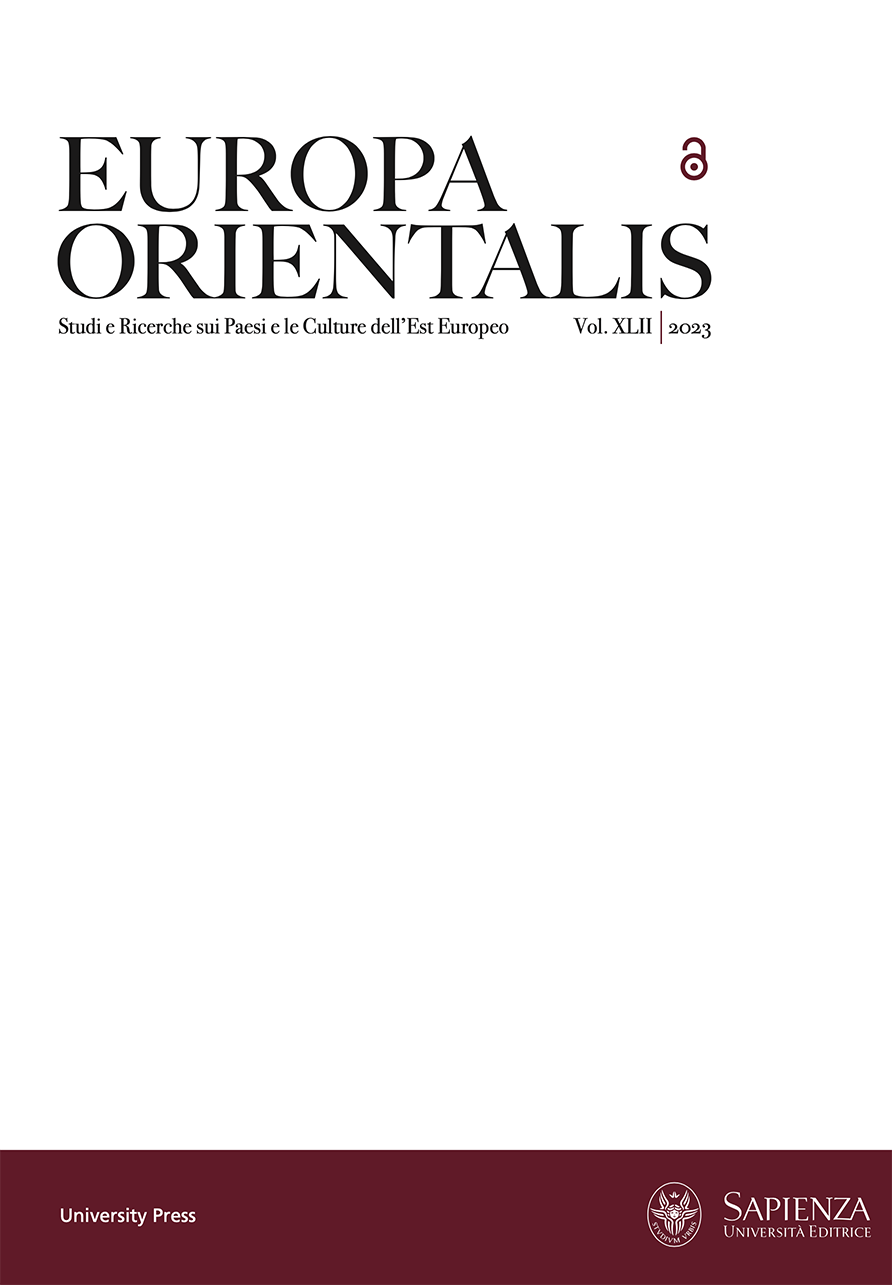Welcome to e-publishing platform of Sapienza University of Rome. The platform is managed through the open source software Open Journal Systems (OJS).
In this page are listed only a part of the journals published.
The complete list of active publications is available at homepage of Riviste Online SApienza (R.O.SA) service.
Journals
-
Rivista di studi ungheresi
Rivista di filologia ungherese, di studi sull’Europa centrale e di letterature comparate
-
Medicina nei Secoli: Journal of History of Medicine and Medical Humanities
Medicina nei secoli: Journal of history of medicine and medical humanities, founded in 1964, is an international peer-reviewed Journal published by Sapienza University of Rome (Sapienza University Press). Since 1989, MnS has been edited by the History of Medicine and Bioethics Unit of the Department of Molecular Medicine.
MnS publishes original research papers, critical reviews and short communications devoted to all aspects of History of Medicine and Biomedicine, History of Healthcare and Health Professions, History of Bioethics and Medical Humanities.
Editor
Valentina Gazzaniga
Journal Information
Language: English/Italian
Frequency: Quarterly: 3 issues/year
Format: 20 x 27 cm -
Europa orientalis
Europa Orientalis is an annual peer-reviewed journal. It promotes research in all areas of Slavic studies and publishes specialist studies on the history, cultures, languages and literatures of the Slavic and Eastern European countries. It also includes critical and unpublished works, archival documents, discussions, bibliographies and reviews.
The journal is listed in the European Reference Index for the Humanities (ERIH PLUS) and other academic indexes. It is also included in the list of A-rated international humanities journals by the Italian Agency for the Evaluation of Universities and Research (ANVUR). -
Rassegna di psicologia
Rassegna di psicologia (RdP) was an open access journal of the Department of Social and developmental psychology and of the Department of Dynamic and clinical psychology at Sapienza University of Rome.
The journal was published until issue 1/2020: volumes published from 2016 to 2020 are available in the Archives section.
Volumes from 2009 to 2015 are available on Il Mulino Rivisteweb platform: institutional users of Sapienza University of Rome can access through institutional login (IDEM).From May 2020 Rassegna di psicologia has become Psychology Hub and is currently published by Sapienza Università Editrice.
-
EuroStudium3W
EuroStudium3w is a six-monthly journal, founded in 2006, published by Sapienza Università Editrice and edited by the SARAS Department, in which scholars from various European countries collaborate, both on a scientific and editorial level. The journal, peer reviewed and open access, aims to give greater awareness, in a historical perspective, with regard to the multiple events, affinities and elements of differentiation that have marked and characterize the European peoples and States, especially those that make up the current Union, also in order to deepen the awareness of community and of diversity in the context started since the end of the last world war. Research, reflections and insights are offered both in the short and in the medium and long term, from the Middle Ages to the contemporary age, with particular attention to the historical itineraries that have led to the processes of integration on a supranational level and to the establishment of continental and transnational networks. In the context, a specific interest is addressed to the culture of federalism and interdisciplinarity is valued in historical research, in the use of sources and in the interpretation of communication codes. The journal offers essays and articles both in Italian and in other European languages with abstracts in English and in the language of the text.
-
Ricerche slavistiche. Nuova serie
'Ricerche slavistiche' is the oldest active Italian journal of Slavistics. It was established in 1952 by the founder of Slavic philology in Italy, Giovanni Maver, and has been for a long time characterised by the centrality given to the philological study of texts, which corresponds to the formation of this discipline and its articulation throughout the 20th century. It now proposes itself as a place for in-depth study and scientific debate in a different historical and cultural context, where the roots and traditions of Slavic languages and cultures in Europe can be studied in their reciprocal relations and intersections with non-Slavic cultural traditions - with the cultures of the Germanic area, the Baltic area, the Romance area and the Balkan area in its non-Slavic expressions - up to investigating their contemporary outcomes.




